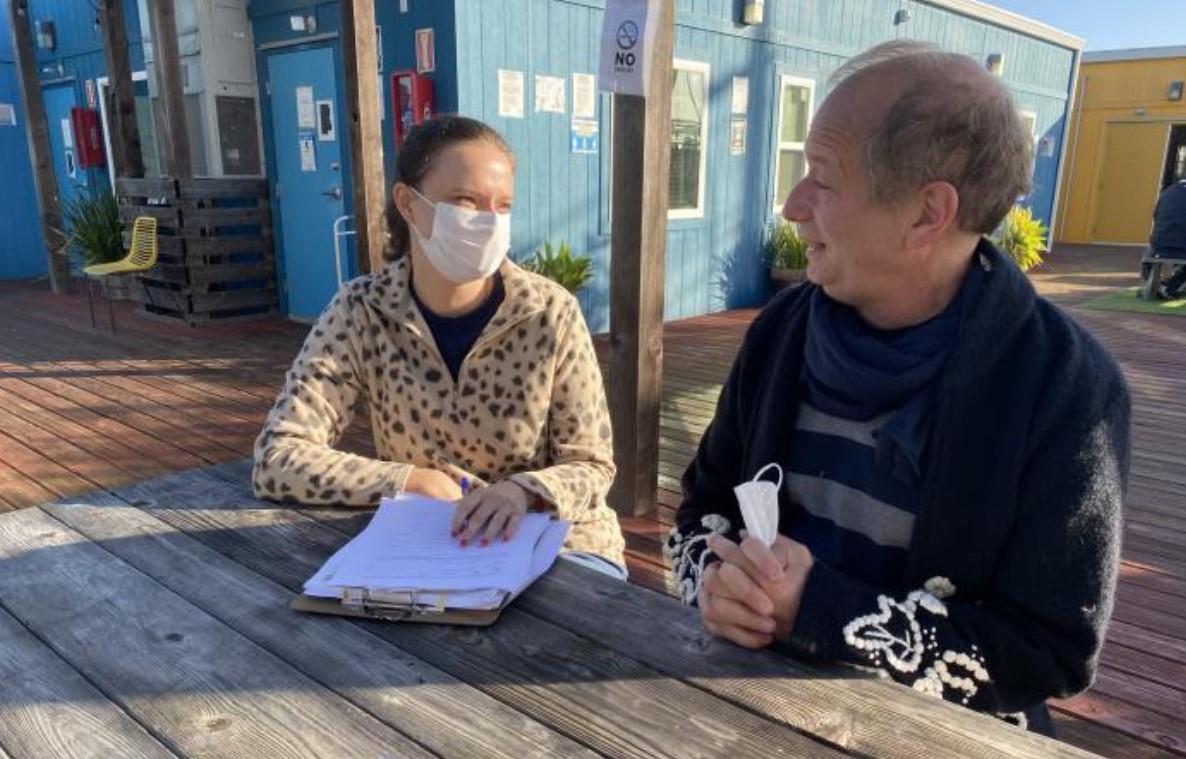A survey of 725 healthcare workers (HCWs) across 41 previously unaffected countries in August, September, and October 2022 shows 30% had never heard of mpox before the outbreaks and over 25% said they misdiagnosed the disease once it appeared, according to a new preprint study from a team of global researchers led by scientists from Queen Mary University of London.
Among the 725 HCWs recruited for the study, 91% were physicians who specialized in sexual health or infectious disease.
The global mpox outbreak in 2022 was primarily spread by sexual transmission of the zoonotic illness among men who have sex with men (MSM) in countries that had previously seen no or little monkeypox, or mpox, activity. Any infections in countries outside of Africa were most often travel-related and not linked to large outbreaks.
Assessing readiness, burnout
Following surveys of HCWs given during the COVID-19 pandemic, researchers were trying to assess preparedness, burnout, and difficulties facing HCWs who encountered mpox cases.
Workers were recruited through social media and were eligible if they lived in a region that had not seen endemic mpox activity.
"This analysis was restricted to individuals residing in the United Kingdom (UK), the European Union (EU), the Caribbean, Central America, South America, the United States (US), and Canada, because the purpose of the survey was to evaluate pandemic preparedness and the clinical confidence of clinicians dealing with an existing pathogen emerging in a new context," the authors wrote.
The online survey included 87 questions on topics ranging from demographics, outbreak preparedness, vaccination status, moral distress. and psychological unease.
Lack of confidence managing cases common
Thirty percent of respondents said they had never heard of mpox before, with only 2% of US and Canadian physicians saying they had heard of the virus before the outbreak, compared with 4% in Central and South America and 24% in Europe.
Overall, 41% of those surveyed reported working longer hours during the mpox outbreak, and more than 25% said they had misdiagnosed someone initially.
Roughly half of all HCWs surveyed said they felt not at all or only a little bit confident in managing suspected or confirmed clinical cases of mpox when the outbreak began. Similarly, 53% said their institution provided clear, timely, and authoritative information about mpox.
Fifty-five percent said they felt the term "moral distress" resonated with their experiences at work managing suspected or confirmed clinical cases of mpox.
Once the mpox vaccine was offered, HCW uptake was high across all regions, with 71% in Europe, 100% in Central and South America, and 85% in the United States and Canada receiving it. Within Europe, 26% of respondents did not feel they received the vaccine in a timely and equitable manner, compared with 30% in Central and South America and 19% in the United States and Canada.
Overburdened and underprepared
"Not only did HCWs feel over-burdened in the mpox response, they also felt under-prepared to respond to a new outbreak of a disease with which many of them had little familiarity," the authors concluded.
This knowledge deficit underscores the urgent need for enhanced global pandemic preparedness initiatives which prioritize HCWs most likely to be at the frontlines of any outbreak response.
"Despite mpox being identified in animals 66 years ago and in humans 20 years later in 1970, our study revealed significant gaps in HCW knowledge on this neglected disease. This knowledge deficit underscores the urgent need for enhanced global pandemic preparedness initiatives which prioritize HCWs most likely to be at the frontlines of any outbreak response."

















